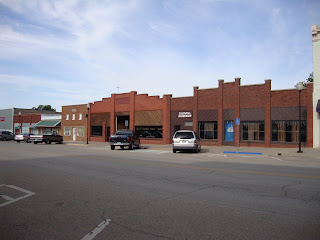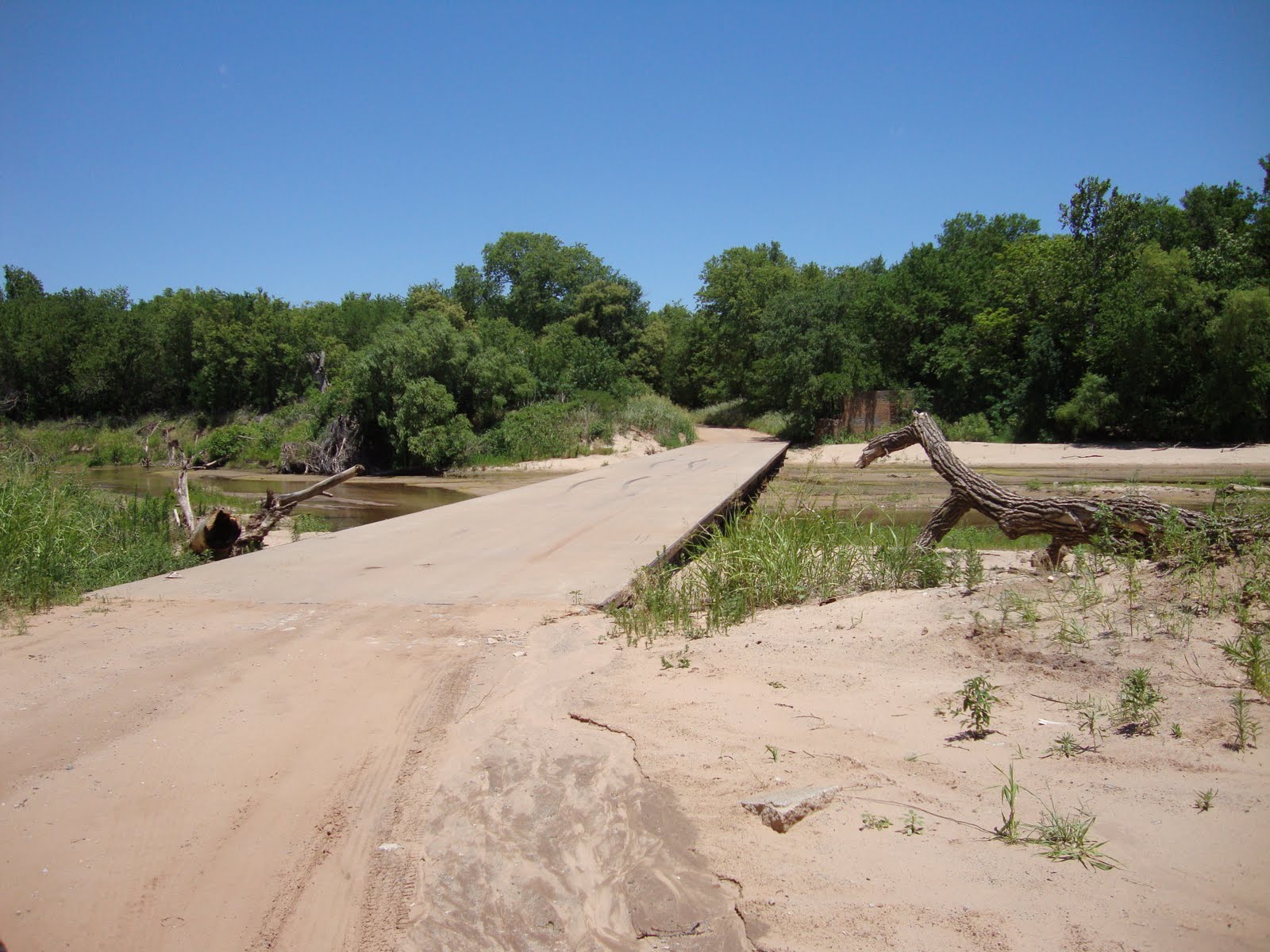Ok, don’t tell anyone, but we did spend a bit of time riding on an Interstate today. It’s not what some might call, “legal,” so don’t let any law enforcement peeps in on our little secret. We were perfectly safe, but still we won’t do it again.
We spent most of the time on the Old Route 66. For the simple fact that Route 66 is such a part of this country’s mythological history, the more time we spend on the road the more I feel like we are experiencing history. For me, standing in the spot where Jackson and Lee had their last meeting before the Battle of Chancellorsville, where the Confederates of Pickett and Armistead and others stood before Pickett’s Charge, where the Boston Tea Party and Battle of Bunker Hill took place, and other historic events, generally bring me to tears.
Before I go on with my reflections on riding this road, let me say a few things. First of all, the reason I’m not writing on my reflections on the questions posed a few days ago is that we stopped here in Tucumcari, New Mexico at a Motel 6 and we need a code to get on the Internet. After a hot and long day, I’m too lazy to go back to the office and get the code right now. Most of the reflection is already in a draft on my blog, so instead I’m writing this and will copy and paste later. Sorry about that. But hey, this will still be good.
Also, as you might guess by my saying that we are now in New Mexico, another state has bit our dust. This time it’s probably literally true because it is such a drought out here, and it’s already a desert anyway. As we passed into New Mexico, we saw someone stop at the border to take a picture as they entered Texas. Apparently we aren’t the only ones traveling to all new places. We’ve also seen quite a few Longhorns, as expected, but still really cool seeing them up close and personal. Not quite as cool seeing cactus but those have also crossed our visionary paths. What else, what else? Oh, we are now in the next time zone over as well. So if you are used to reading this blog at a certain time, well, maybe push it back an hour to make sure it’s up.
Back to Route 66. As we returned to Route 66 halfway through our ride today, it very shortly turned into dirt. At that point we were certain that no one used the road much anymore. We were already pretty sure, though, because a tour bus came down the road and turned around. I guess they saw all that there was to see. And also, all the buildings on the side of the road—restaurants, post office buildings, motels, cafes—had no glass on the windows, the roofs were collapsing, walls were missing, and grass was everywhere. One of the buildings was kind of creepy because I could hear a piece of wood inside swaying back and forth, creaking as it did so. Even after the dirt ended, we saw hardly anything except broken-down houses, barns, and other buildings that could have been motels or restaurants. All of this, clearly, was once very popular.
What I’m saying is that we saw first-hand how human geography works. Human geography is a class that I took in undergraduate school, and originally I thought, “Why don’t we just call it geography?” Well, now I see why. Humans have a giant impact on the environment, and our interactions with one another have a distinctive pattern that affects the world. The construction of a new interstate made this historic road obsolete. Thus all the businesses that were made successful because of Route 66 were also obsolete. Now based on the new road, Route 40, different towns and different areas are target markets.
I think about how fragile life is. I don’t only mean fragile in the sense that I might fall off my bike and hit my head hard enough to crack it and I die in a fraction of a second (wow that is much more gruesome of an image than I meant it to be). I mean that life is fragile in all its elements. A person may work hard and put their entire savings into a business venture and then someone decides to move the road over a few miles, destroying the hard work of that person and also their life. What might happen to that person after that disappointment? Depression? Suicide? Alcoholism? Child abuse?
Maybe I am being a little extreme, but I think it’s clear that our decisions affect others in very indirect but noticeable ways. That person whose entire life fell apart in a failed business venture on Route 66 might have nowhere to turn but anger. If they have children, that anger might boil to the surface as abuse, likely in the form of drunken outbursts. And even if the person is still strong and remains optimistic, they might not be able to support a family, so a child would not be without reason to seek ways to find a better life any means possible. Who would be responsible for that?
First of all, I don’t like the word “responsibility.” Every downturn in fortune for some reason requires blaming someone or finding who was responsible. And every upturn places one person who is most visibly responsible on a pedestal. If Rafael Nadal or Novak Djokivic win Wimbledon, we can’t think that they are the only one responsible for the achievement. Similarly, if Andy Schleck or some other rider defeats Alberto Contador in the Tour de France, the entire team and management have a share in the achievement. For everything, trying to find the person or persons responsible is almost impossible. The chain of responsibility often extends far beyond what we’d like to admit.
With that said, I have to say that a whole lot of people would be responsible for the disaster that might befall the family of the failed Route 66 business venture. It wouldn’t be out of the question to say that a child in that family might end up in some form of slavery. So what I’m saying is that a whole lot of people would be “responsible” for enslaving a child from that family. That’s not what we like to hear. Not at all. I personally can’t bear the thought.
We really can have no knowledge of how far out our responsibility for things extends. But what we can do is be more conscious of what we’re doing. Think through every action that we make and what impact it might have and then make a choice instead of only thinking about what we want in the here and now. Do that, and we can do a great good in the world.












































